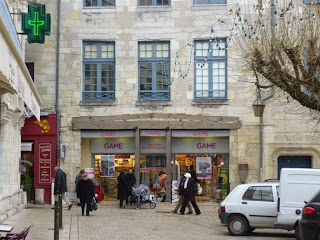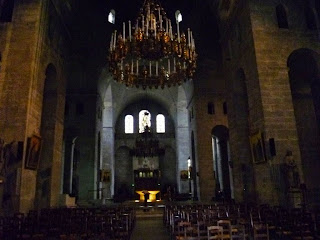Périgueux,
Departamento de Dordoña, Región de Aquitania. El nombre viene de Petrocorii,
forma latinizada del nombre celta que significaba “cuatro tribus”. Era el
pueblo galo que vivía en la región antes de la llegada de los romanos. Forma
parte del Camino de Santiago en la Vía Lemovicensis. Périgueux es una capital
turística y cultural etiquetada con 4 flores, según los criterios turísticos
franceses. La villa ofrece a los visitantes un patrimonio histórico
galo-romano, medieval y del Renacimiento. La Cité, parte amurallada del casco
histórico, tiene su origen en el siglo I a.c., durante la ocupación romana en
la Galia. La ciudad nace en 1240 de la unión entre La Cité y el
Puy-Saint-Front. Périgueux es la base de empleo de la zona, y abriga alguna
empresa de la SNCF con 700 empleados.
Périgueux,
Dordogne, Aquitaine Region. The name comes from Petrocorii, Latinized form of
the Celtic name meaning "four tribes". It was the French people who
lived in the region before the arrival of the Romans. It is part of the Camino
de Santiago in the Via Lemovicensis. Périgueux is a tourist and cultural
capital labeled 4 flowers, according to the French tourist criteria. The town
offers visitors a Gallo-Roman, medieval and Renaissance heritage. La Cité, the
historic walled town has its origin in the first century BC, during the Roman
occupation of Gaul. The city was born in 1240 from the union between La Cité
and the Puy-Saint-Front. Périgueux is the employment base in the area, and it
is home to some of the SNCF company with 700 employees.






















No hay comentarios:
Publicar un comentario